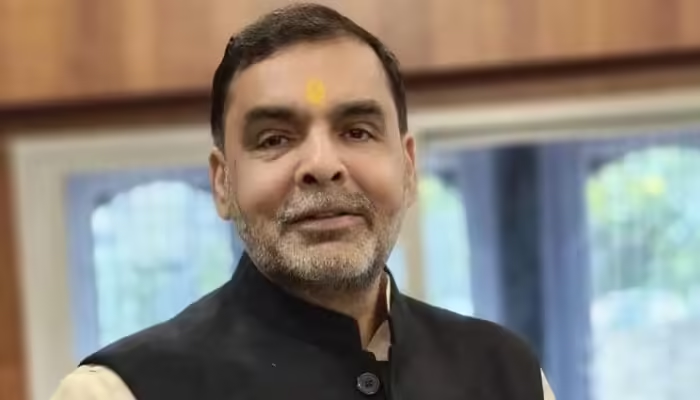The Wrestling Federation of India (WFI) chief, Sanjay Singh, recently stirred controversy by attributing India’s underwhelming performance in wrestling at the Paris Olympics to the protests staged by wrestlers last year. India managed to secure only one bronze medal in wrestling at the Paris Olympics, a result far below expectations for a country with a strong wrestling tradition. Singh’s remarks have ignited a debate about the impact of the protests on the athletes’ performance and whether external factors should bear the blame for the nation’s Olympic results.
Background of the Protests
The protests in question were led by some of India’s top female wrestlers, who accused the then-president of the Wrestling Federation of India, Brij Bhushan Singh, of sexual harassment. The allegations sent shockwaves through the sporting community and led to widespread public support for the wrestlers. The protests, which lasted for over four months, demanded Brij Bhushan Singh’s removal from his post and a thorough investigation into the allegations.
The sit-ins and demonstrations brought significant attention to issues of safety and fairness in Indian sports, particularly for female athletes. However, the prolonged nature of the protests also had a noticeable impact on the regular training and competition schedules of the wrestlers involved. According to WFI chief Sanjay Singh, this disruption played a pivotal role in India’s lackluster performance in wrestling at the Paris Olympics.
Sanjay Singh’s Controversial Remarks
Sanjay Singh, while reflecting on the reasons behind India’s modest medal haul at the Paris Olympics, did not mince words in pointing fingers at the protests. He argued that the protests, which he claimed were unnecessary, disrupted the athletes’ preparation and training regimen for over 15 to 16 months. Singh lamented that the protests had derailed what could have been a historic medal tally for India in wrestling.
“We could have won more medals,” Singh stated, pointing out that India secured six medals in total at the Olympics. He expressed frustration that wrestling, a sport where India has traditionally excelled, failed to deliver more medals due to the extended period of unrest. He further claimed that anti-national forces were behind the protests, causing harm to the sport and the country’s prospects at the Olympics.
Singh’s comments have sparked widespread debate, with critics arguing that his remarks diminish the importance of the issues raised by the protesting wrestlers. The suggestion that the protests were unnecessary and harmful to the nation’s Olympic prospects has been met with significant backlash, particularly from those who believe that the athletes’ right to protest against alleged misconduct should be upheld and respected.
The Performance of Indian Wrestlers at the Paris Olympics
India’s wrestling contingent at the Paris Olympics faced several challenges, culminating in only one bronze medal for the nation. One of the most talked-about moments was the disqualification of female wrestler Vinesh Phogat, who was deemed overweight by just 100 grams, costing her a chance to compete for the gold medal. This incident, among others, highlighted the fine margins and pressures that athletes face on the global stage.
While Singh’s assertion that the protests negatively impacted the wrestlers’ preparation cannot be entirely dismissed, it is also essential to recognize the complexity of the situation. The disruptions caused by the protests undoubtedly affected the athletes’ ability to focus on their training and participate in international competitions. However, other factors, such as injuries, competition pressures, and individual performance on the day, also play crucial roles in determining outcomes at the Olympics.
A Broader Debate: Prioritizing Athletes’ Rights vs. National Expectations
The controversy surrounding Singh’s remarks has opened up a broader debate about the balance between athletes’ rights and national expectations. On one hand, the protests were a critical moment for addressing serious issues within the sport, particularly concerning the safety and well-being of female athletes. On the other hand, the nation’s Olympic aspirations were undeniably affected by the prolonged period of unrest.
Critics of Singh’s comments argue that the right to protest against alleged misconduct should never be compromised, even if it affects national performance in international competitions. They emphasize that the well-being and rights of athletes must come first, and that the failures of an institution to protect its athletes should be scrutinized rather than the athletes themselves.
Conversely, those who support Singh’s view argue that the timing and duration of the protests were detrimental to India’s Olympic chances. They believe that such issues, while important, should have been resolved more swiftly to allow athletes to focus on their preparations for the games.
The debate ignited by Sanjay Singh’s comments highlights the complex intersection of sports, rights, and national pride. While the protests undoubtedly played a role in disrupting the preparation of India’s wrestlers, it is crucial to recognize the legitimacy of the concerns raised by the athletes involved. The challenge for sports administrations, moving forward, is to ensure that athletes’ rights are protected without compromising their performance on the global stage. This balance is essential for fostering a sporting environment that prioritizes both excellence and integrity.



